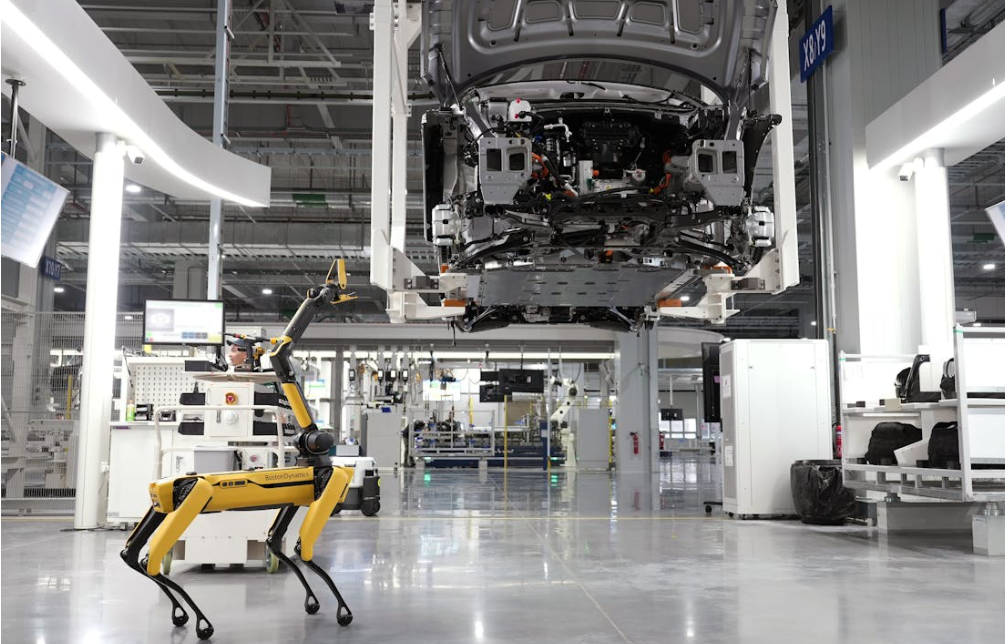Industrial automation is no longer a distant dream for the manufacturing sector, it has become a cornerstone of modern production processes. By integrating advanced machinery and cutting-edge technology, manufacturers can achieve levels of efficiency, speed, and precision that were once unimaginable. But what exactly is industrial automation, and how is it reshaping the landscape of manufacturing?
What is Industrial Automation?
Industrial automation refers to the use of control systems, such as computers and robots, to operate machinery and processes in manufacturing without significant human intervention. It involves several components like sensors, controllers, actuators, and software systems that work together to execute precise actions.
The Evolution of Industrial Automation
Automation in manufacturing began with simple mechanized tools and has since evolved into highly sophisticated systems. From the invention of the steam engine to the rise of computer-aided design (CAD) and robotics, each technological leap has contributed to today’s advanced manufacturing facilities.
Types of Industrial Automation Equipment
Programmable Logic Controllers (PLCs)
PLCs are the backbone of many automated systems, managing real-time operations with exceptional precision. PLC Systems are used for tasks like assembly line control, machine functions, and monitoring production processes.
Robotics and Automated Machines

Robots can perform repetitive and dangerous tasks, enhancing safety and efficiency. From welding and painting to assembling tiny components, robots have become indispensable in many manufacturing setups.
Computer Numerical Control (CNC) Machines
CNC machines are used for precise cutting, drilling, and shaping of materials. These machines can be programmed to produce identical parts with exact specifications, making them ideal for industries like automotive and aerospace.
Artificial Intelligence and Machine Learning in Automation
AI and machine learning are taking automation to the next level. These technologies enable machines to adapt and improve over time, leading to more efficient operations and predictive maintenance.
Motors and Encoders
Motors and encoders are essential components in various mechanical and automation systems. Motors convert electrical energy into mechanical motion, Encoders, on the other hand, are sensors that provide feedback on the motor’s position, speed, and direction. Together, motors and encoders enable accurate and efficient control in applications like robotics, CNC machines, and automated production lines.
How Industrial Automation is Transforming Manufacturing
Streamlining Production Processes
Automated systems can run continuously, significantly increasing the speed of production. This allows companies to meet higher demands without the need for excessive manual labor.
Improving Product Quality and Consistency
With automation, manufacturers can achieve uniformity in their products, minimizing the variations that often result from manual processes.
Reducing Human Error in Production
Machines operate with precision, drastically reducing the likelihood of errors. This not only saves time but also prevents costly mistakes that could affect product quality.
Enabling Mass Production
Automation enables manufacturers to produce large volumes of products without compromising on quality. This is especially important in sectors like consumer electronics, where demand can be unpredictable.
Benefits of Industrial Automation Equipment
Increased Efficiency and Productivity
Automated equipment can complete tasks faster than human workers, leading to higher output rates and more efficient use of time.
Cost Savings in the Long Run
Although the initial investment in automation can be high, the long-term savings in labor costs, material wastage, and energy consumption make it a wise choice.
Improved Safety for Workers
Automation reduces the need for human workers in dangerous environments, minimizing the risk of accidents and injuries on the factory floor.
Better Use of Resources and Energy
Automated systems can optimize the use of raw materials and energy, reducing waste and improving the sustainability of manufacturing operations.
Real-World Applications of Industrial Automation
Automotive Industry Advancements
Automation is pivotal in the automotive industry, where precision and speed are crucial for assembling vehicles.
Pharmaceutical Manufacturing
Automation ensures accuracy in drug formulations, reducing the risk of contamination and improving the consistency of medication.
Electronics and Semiconductor Production
The high precision required in semiconductor manufacturing makes automation essential for producing reliable electronic components.
Food and Beverage Industry Automation
From sorting and packaging to quality control, automation helps food and beverage manufacturers maintain hygiene and efficiency.
Future Trends in Industrial Automation
Rise of Collaborative Robots (Cobots)
Cobots work alongside human workers, combining the precision of machines with human creativity and problem-solving skills.
Growth of IoT in Manufacturing
The Internet of Things (IoT) is enabling better communication between machines, leading to smarter and more responsive manufacturing systems.
Predictive Maintenance and Its Role
By analyzing data from machines, predictive maintenance can prevent breakdowns before they occur, saving time and money.
Advances in AI and Deep Learning for Automation
AI is enabling machines to learn from data, adapt to changes, and make decisions, leading to smarter, more efficient production.
Conclusion
Industrial automation has revolutionized manufacturing, bringing a level of precision and efficiency that was once unimaginable. As technology continues to advance, the possibilities for further innovation in this field are limitless. Embracing automation is no longer a choice but a necessity for manufacturers looking to stay competitive.











